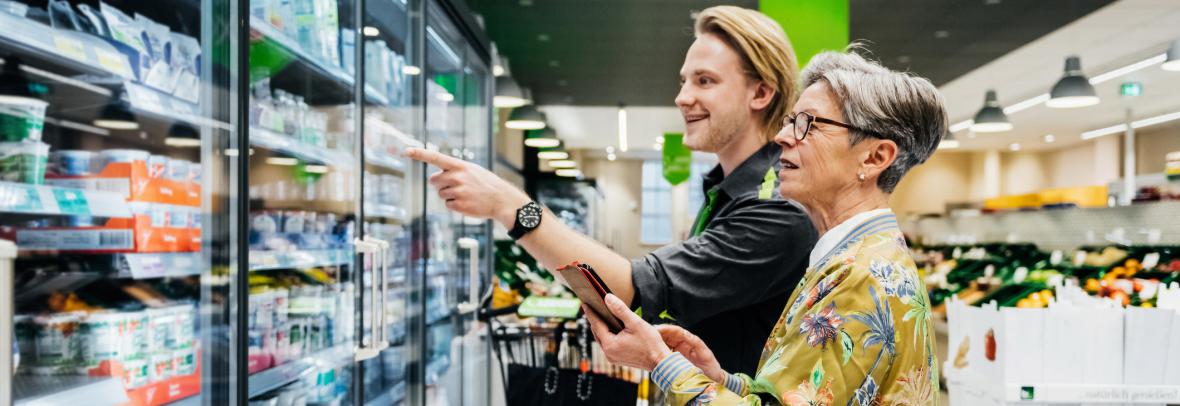
If consumer attitudes drive the economy, a recession appears less likely. The Consumer Confidence Index hit 109.7 in May, up from April’s 102.5.
BOSTON – The Conference Board Consumer Confidence Index increased in June to 109.7 up from 102.5 in May.
The Present Situation Index – consumers’ assessment of current business and labor market conditions – rose to 155.3, up from 148.9 last month.
The Expectations Index – consumers’ short-term outlook for income, business and labor market conditions – rose to 79.3 from 71.5 in May. Expectations have remained below 80 – the level associated with a recession within the next year – every month since February 2022, with the exception of a brief uptick in December 2022.
However, June’s reading was just a shade below 80 and up sharply from last month’s reading.
“Consumer confidence improved in June to its highest level since January 2022, reflecting improved current conditions and a pop in expectations,” says Dana Peterson, chief economist at The Conference Board. “Greater confidence was most evident among consumers under age 35 and consumers earning incomes over $35,000.”
While the Expectations Index still suggests a recession ahead, it may have turned a corner, and “a new measure found considerably fewer consumers now expect a recession in the next 12 months compared to May,” Peterson says. “Meanwhile, on a six-month moving average basis, plans to purchase autos and homes have slowed after picking up earlier in 2023.”
The slowdown in big-ticket items might be related to the higher cost of credit as interest rates rise.
“Vacation plans within the next six months continued to flag, led largely by declines in plans to travel domestically,” Peterson adds. “This is an important indicator of desires to spend on services ahead, which … signal that post-pandemic ‘revenge spending’ on travel may have peaked and is likely to slow over the rest of this year.”
Present situation
“Assessments of the present situation rose in June on sunnier views of both business and employment conditions,” says Peterson. “Indeed, the spread between consumers saying jobs are ‘plentiful’ versus ‘not so plentiful’ widened, indicating upbeat feelings about a labor market that continues to outperform.”
- 23.7% of consumers said business conditions were “good,” up from 19.7% last month.
- 16.3% said business conditions were “bad,” down from 16.7%.
- 46.8% said jobs were “plentiful,” up from 43.3%.
- 12.4% said jobs were “hard to get,” slightly lower than 12.6% last month.
Expectations six months in the future
Consumers were marginally more optimistic about the short-term business conditions outlook in June.
- 14.2% of consumers expect business conditions to improve, up from 13.2%.
- But 17.7% expect business conditions to worsen, down from 21.4%.
- 15.5% of consumers expect more jobs to be available, up from 13.8%.
- 16.0% anticipate fewer jobs, down from 21.1%.
- 16.9% expect their incomes to increase, down from 18.9%
- 11.9% expect their incomes to decrease, up from 11.4%
Family’s current financial situation
“While income expectations ticked down slightly in June, new questions included in this month’s release found a notably brighter outlook for consumers’ family finances: Around 30% expect their family’s financial situation to be ‘better’ in the next six months, compared to less than 14% expecting it to be ‘worse,’” says Peterson. “This might reflect consumers’ belief that labor market conditions will remain favorable and that there will be further declines in inflation ahead. Indeed, the 12-month forward inflation expectations gauge fell to 6% in June, the lowest reading since December 2020.”
- 28.5% of consumers say their current family financial situation is “good,” down slightly from 29.2% in May.
- 18.2% say their current family finances are “bad,” down from 19.5%.
Family’s expected financial situation, six months in the future
- 30.3% of consumers expect their family finances to be “better,” up from 28.9% in May.
- 13.7 % expect family finances to be “worse,” down from 14.9%.
This positive outlook might reflect consumers’ expectation that labor market conditions will remain favorable and that there may be further declines in inflation ahead.
Perceived likelihood of a U.S. recession
After rising steadily since August 2022, recession fears appear to have eased considerably in June: 69.3% of consumers say a recession is “somewhat” or “very likely,” down from 73.2% in May.
Toluna, a technology company, conducts the monthly Consumer Confidence Survey for The Conference Board.. The cutoff date for the preliminary results was June 20.
© 2023 Florida Realtors®
Go to Source
Author: kerrys



